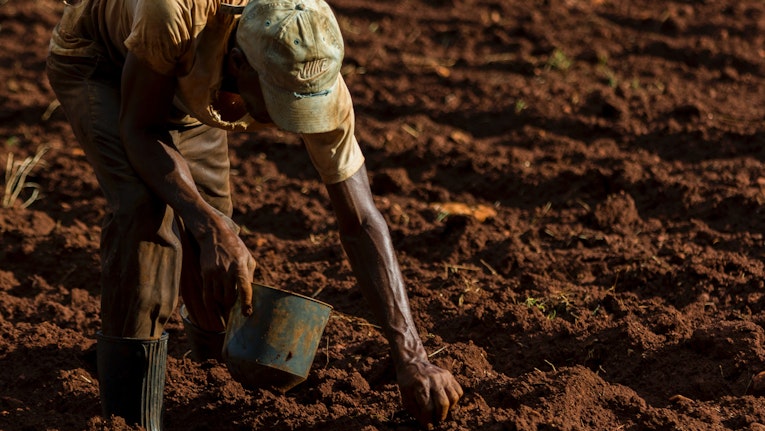Growing Places: How agri-tech innovators are transforming Africa’s food security future
31/08/2023
Agriculture has always been at the heart of Africa’s economic agenda, fueling everything from employment and food security to innovation and economic growth.
The current farming industry still constitutes a high percentage of the continent’s GDP. African nations also make up 60% of the world’s unused arable land, and are now seen as a potential ‘bread basket of the world’.
Despite this potential, the continent also remains the most food-insecure region in the world and a net importer of food. With governments still wrestling with effective ways to find viable solutions, the new generation of African agritech innovators aren’t waiting around, instead relying on their own ideas and innovations to make a difference.
Many African nations are ideally positioned to make the most of new agri-tech innovations, which have the potential to deliver superior yields, greater resistance to pests and diseases, climate tolerance and shorter crop maturity periods.
Agri-tech startups in Kenya and Nigeria are already utilising technology such as drone supply chains and AI powered pest detection systems to circumvent the legacy issues that have prevented progress where it matters most - rural farming communities.
By taking on their own specific legacy food security issues, including those made worse by years of endemic corruption and insufficient infrastructure, African innovators can start taking ownership of their agricultural future.
Climate, conflict and commerce.
According to the Food and Agricultural Organization (FAO) Food Price Index, 2022 saw food prices hitting their highest levels.
Africa is, and will continue to be, the most affected continent by the unprecedented trifecta of the ongoing effects of climate change, pandemic fallout and food price rises fuelled by the Russia/Ukraine war.
These latest developments have exacerbated many African nations’ inability to meet their commitment to use 10% national budget expenditure for agriculture, with most food and agricultural industries receiving only around 3%.
Digging into Africa’s current agricultural situation brings to light the cause of this deficit; a ‘multiverse’ of overlapping challenges, including underinvestment, underdeveloped infrastructure, over-reliance on foreign imports, high input costs, absence of technology and data-use in agriculture, corruption and global conflict.
Nurturing more than just crops.
At the heart of the new agri-tech start-ups is a desire to make a difference to ensure Africa’s sustainable future, using new technologies to help local farmers become more efficient, self-sufficient and profitable.
Agri-tech innovation has been seen to help increase farm yields, decrease post-harvest loss, and develop stronger markets to link suppliers and consumers – all increasing food security for local populations.
The key to making these fledgling technologies a reality, and a success is two-fold.
Supporting the new breed of home grown innovators who have broken through and attracted funding as a result of their innovative spirit and ideas. And also engaging and activating Africa’s new burgeoning workforce.
‘Youth engagement in agriculture will be essential to recovering from the economic impacts of the pandemic, both to rejuvenate the continent’s agri-food system and develop economic opportunities for young Africans’. Adesuwa Ifedi, senior vice president for Africa Programs at Heifer International.
Africa is a young continent, with nearly 60% of its population aged below 25. It’s hoped that by establishing a platform for new, exciting agri-tech programmes, the next generation will become the driving force behind African agri-tech success.
New Ideas. New Growth?
In 2022, Ventures Africa reported that African agri-tech startups had received $95m worth of funding in 2021, a 58.5% year-on-year increase.
Several start-ups across the continent are working to counteract changing weather conditions, as countries like Kenya and Somalia face the brunt of the worst-drought in over 40 years.
One firm, based in Mali, OKO uses satellite and sensor data to track weather patterns and automatically compensate smallholder farmers, who would not have an alternate source of income after a bad harvest.
By using digital tech and data across supply chains, firms such as iProcure in Kenya, and Tingo and TradeBuza in Nigeria are cutting out the middleman, and using tech advances to empowering local farmers directly.
Agri-tech innovation has been successfully changing how Africa can manage food supplies when farmland (and weather conditions) aren’t ideal. Hydroponics – the science of growing crops without soil - means urban farms are a now a real possibility, by reducing the post-harvest travel distance from farms to market will reduce damage to crops in transit.
Discover more about Nigeria’s future farming tech boom by watching 'Harvesting Innovation: Agritech Growth in Nigeria' at africaverified.com.
Digging in to make a difference.
The agri-tech sector is seen by many as an opportunity for African nations to use their unique natural circumstances to own and energise their food security, breaking away from reliance on imports while sowing the seeds for a climate considerate progression.
Success depends on many planets aligning, including energised global investment, cooperative national policy making, and amplifying awareness of new technologies to attract tomorrow's innovators and agriculturalists.
For now, agri-tech in Africa looks set to define the continent’s climate and agricultural roadmap, with the hope that collaborative sharing of knowledge and support will deliver the stability and self-determination required to thrive.







